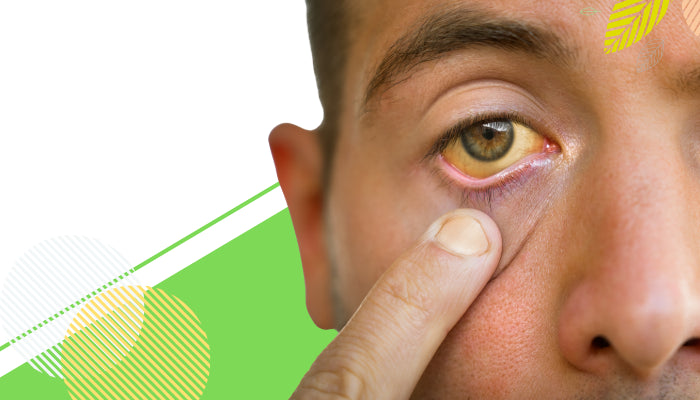Your Cart is Empty

হেপাটাইটিস বি এবং সি এর মতো ভাইরাল সংক্রমণ, অত্যধিক অ্যালকোহল সেবন, নন-অ্যালকোহলিক ফ্যাটি লিভার ডিজিজ (NAFLD), অটোইমিউন ডিসঅর্ডার, জেনেটিক ডিসঅর্ডার, নির্দিষ্ট টক্সিন বা রাসায়নিকের সংস্পর্শে আসা এবং কিছু ওষুধের পার্শ্বপ্রতিক্রিয়া সহ লিভারের রোগের বিভিন্ন কারণ থাকতে পারে। . যাইহোক, লিভার রোগের প্রধান কারণ লিভারের রোগের নির্দিষ্ট ধরনের এবং জীবনধারা এবং চিকিৎসা ইতিহাসের মতো স্বতন্ত্র কারণগুলির উপর নির্ভর করে পরিবর্তিত হতে পারে।

লিভার সামগ্রিক স্বাস্থ্য বজায় রাখতে একটি গুরুত্বপূর্ণ ভূমিকা পালন করে, কারণ এটি শরীরকে ডিটক্সিফাই করতে, বিপাক নিয়ন্ত্রণে সহায়তা করে। লিভারের রোগ একজন ব্যক্তির জীবনের মানের উপর উল্লেখযোগ্য প্রভাব ফেলতে পারে এবং এমনকি গুরুতর ক্ষেত্রে জীবন-হুমকি হতে পারে। আপনি নিম্নলিখিত পদক্ষেপগুলি গ্রহণ করে লিভারের রোগ প্রতিরোধ করতে পারেন:
অত্যধিক অ্যালকোহল সেবন লিভার রোগের একটি প্রধান কারণ। লিভারের ক্ষতির ঝুঁকি কমাতে, প্রস্তাবিত মাত্রায় অ্যালকোহল গ্রহণ সীমাবদ্ধ করা গুরুত্বপূর্ণ। অ্যালকোহল অপব্যবহার এবং অ্যালকোহলিজম সম্পর্কিত ন্যাশনাল ইনস্টিটিউট সুপারিশ করে যে পুরুষরা দিনে চারটির বেশি পানীয় পান করবেন না এবং মহিলারা প্রতিদিন তিনটি পানীয় পান করবেন না।
একটি স্বাস্থ্যকর খাদ্য বজায় রাখা যকৃতের স্বাস্থ্যের জন্য অত্যন্ত গুরুত্বপূর্ণ। একটি সুষম খাদ্যে বিভিন্ন ধরনের ফল, শাকসবজি, গোটা শস্য এবং চর্বিহীন প্রোটিন থাকা উচিত। উচ্চ-ক্যালোরি এবং উচ্চ চর্বিযুক্ত খাবারের ব্যবহার সীমিত করাও গুরুত্বপূর্ণ যা ওজন বাড়াতে পারে এবং লিভারের রোগের ঝুঁকি বাড়ায়।
স্থূলতা হল নন-অ্যালকোহলিক ফ্যাটি লিভার ডিজিজ (NAFLD) সহ লিভারের রোগের ঝুঁকির কারণ। একটি সুষম খাদ্য এবং নিয়মিত ব্যায়ামের মাধ্যমে একটি স্বাস্থ্যকর ওজন বজায় রাখার মাধ্যমে, ব্যক্তিরা লিভার রোগের ঝুঁকি কমাতে পারে।
নিয়মিত ব্যায়াম
নিয়মিত ব্যায়ামের অনেক স্বাস্থ্য উপকারিতা রয়েছে, যার মধ্যে লিভারের রোগের ঝুঁকি কমানোও রয়েছে। ব্যায়াম লিভারে চর্বি জমা কমাতে, ইনসুলিন সংবেদনশীলতা উন্নত করতে এবং শরীরে প্রদাহের মাত্রা কমাতে সাহায্য করতে পারে।
টক্সিন এবং রাসায়নিক পদার্থ লিভারের জন্য ক্ষতিকর হতে পারে, লিভারের ক্ষতি বা রোগ হতে পারে। এই পদার্থগুলির সংস্পর্শ কমাতে, ব্যক্তিদের কীটনাশক এবং রাসায়নিকের সংস্পর্শ এড়ানো উচিত, পাশাপাশি ভারী ধাতুগুলির মতো ক্ষতিকারক টক্সিনের এক্সপোজার সীমাবদ্ধ করা উচিত।
কিছু ওষুধ, যেমন ব্যথানাশক এবং অ্যান্টিবায়োটিক, লিভারের জন্য ক্ষতিকর হতে পারে যখন অতিরিক্ত বা দীর্ঘ সময় ধরে নেওয়া হয়। কোনো ওষুধ খাওয়ার আগে একজন স্বাস্থ্যসেবা প্রদানকারীর সাথে পরামর্শ করা এবং ওষুধের ব্যবহার সতর্কতার সাথে পর্যবেক্ষণ করা গুরুত্বপূর্ণ।
হেপাটাইটিস বি এবং সি এর মতো রক্তবাহিত ভাইরাসের সংস্পর্শে আসার ফলে লিভারের ক্ষতি বা রোগ হতে পারে। সূঁচ বা রেজারের মতো ধারালো জিনিসগুলি পরিচালনা করার সময় ব্যক্তিদের যত্ন নেওয়া উচিত এবং ব্যক্তিগত স্বাস্থ্যবিধি জিনিসগুলি যেমন টুথব্রাশ বা ক্ষুর, অন্যদের সাথে ভাগ করা উচিত নয়।
অ্যারোসল স্প্রে, যেমন পেইন্ট বা কীটনাশক, ক্ষতিকারক রাসায়নিক ধারণ করতে পারে যা ত্বকের মাধ্যমে শোষিত হতে পারে বা শ্বাস নেওয়া যেতে পারে, যার ফলে লিভারের ক্ষতি হতে পারে। এই পণ্যগুলিকে একটি ভাল-বাতাসবাহী এলাকায় ব্যবহার করা এবং এক্সপোজার কমানোর জন্য গ্লাভস বা মাস্কের মতো সুরক্ষামূলক গিয়ার পরা গুরুত্বপূর্ণ।
ক্ষতিকারক রাসায়নিক থেকে ত্বককে রক্ষা করা লিভারের স্বাস্থ্যের জন্যও গুরুত্বপূর্ণ। রাসায়নিক পদার্থ যেমন পরিষ্কারের পণ্য, কীটনাশক এবং শিল্প দ্রাবক ত্বকের মাধ্যমে শোষিত হতে পারে এবং যকৃতের ক্ষতি করতে পারে। এই পদার্থগুলি পরিচালনা করার সময় ব্যক্তিদের প্রতিরক্ষামূলক পোশাক এবং গ্লাভস পরতে হবে এবং এক্সপোজারের পরে তাদের ত্বক ভালভাবে ধুয়ে ফেলতে হবে।
নিয়মিত চেক-আপ এবং স্ক্রীনিং পরীক্ষাগুলি যকৃতের রোগকে প্রাথমিকভাবে সনাক্ত করতে সাহায্য করতে পারে, যখন এটি সবচেয়ে চিকিত্সাযোগ্য। লিভার রোগের ঝুঁকিতে থাকা ব্যক্তিদের তাদের স্বাস্থ্যসেবা প্রদানকারীর সাথে নিয়মিত চেক-আপের সময়সূচী করা উচিত এবং রক্ত পরীক্ষা বা আল্ট্রাসাউন্ড ইমেজিংয়ের মতো স্ক্রিনিং পরীক্ষা করা উচিত।

যদি লিভারের রোগ নির্ণয় করা হয়, উপযুক্ত চিকিত্সা পরিকল্পনা নির্ধারণের জন্য একজন স্বাস্থ্যসেবা প্রদানকারীর সাথে কাজ করা গুরুত্বপূর্ণ। লিভার রোগের চিকিত্সার বিকল্পগুলি রোগের ধরন এবং তীব্রতার উপর নির্ভর করে পরিবর্তিত হয়।
ভাইরাল হেপাটাইটিস বা অটোইমিউন হেপাটাইটিসের মতো কিছু ধরণের লিভারের রোগের জন্য চিকিৎসা চিকিত্সার প্রয়োজন হতে পারে। ভাইরাল হেপাটাইটিস চিকিত্সা এবং রোগের অগ্রগতি ধীর করতে অ্যান্টিভাইরাল ওষুধ ব্যবহার করা যেতে পারে। ইমিউন সিস্টেমকে দমন করতে এবং লিভারে প্রদাহ কমাতে অটোইমিউন হেপাটাইটিসের জন্য কর্টিকোস্টেরয়েড এবং ইমিউনোসপ্রেসেন্টগুলি নির্ধারিত হতে পারে।
নন-অ্যালকোহলিক ফ্যাটি লিভার ডিজিজ (এনএএফএলডি) ক্ষেত্রে, অবস্থা পরিচালনা করতে ওষুধ ব্যবহার করা যেতে পারে। উদাহরণস্বরূপ, ভিটামিন ই এবং পিওগ্লিটাজোনের মতো ওষুধগুলি যকৃতের প্রদাহ কমাতে এবং রোগের অগ্রগতি ধীর করতে ব্যবহার করা যেতে পারে।
কিছু ক্ষেত্রে, লিভার মারাত্মকভাবে ক্ষতিগ্রস্ত হলে এবং সঠিকভাবে কাজ করতে না পারলে লিভার ট্রান্সপ্ল্যান্টের প্রয়োজন হতে পারে। লিভার ট্রান্সপ্লান্টের সময়, একটি রোগাক্রান্ত লিভার একজন দাতার থেকে একটি সুস্থ লিভার দিয়ে প্রতিস্থাপন করা হয়।
লিভার রোগের চিকিত্সা রোগের ধরন এবং তীব্রতার উপর নির্ভর করে। চিকিৎসা চিকিত্সা, জীবনধারা পরিবর্তন, এবং খাদ্যতালিকাগত পরিবর্তনগুলি সবই লিভারের রোগ পরিচালনা এবং লিভারের স্বাস্থ্যের উন্নতিতে ভূমিকা পালন করতে পারে। একটি স্বাস্থ্যসেবা প্রদানকারীর সাথে কাজ করা যকৃতের রোগের জন্য একটি উপযুক্ত চিকিত্সা পরিকল্পনা তৈরি করার জন্য অত্যন্ত গুরুত্বপূর্ণ।
লিভার রোগের সবচেয়ে সাধারণ কারণগুলির মধ্যে রয়েছে:
লিভারের রোগের প্রধান তিনটি কারণের প্রশ্নের কোনো সুনির্দিষ্ট উত্তর নেই। যাইহোক, লিভার রোগের কিছু সাধারণ কারণগুলির মধ্যে রয়েছে:
যকৃতের ক্ষতির অনেক সম্ভাব্য লক্ষণ এবং উপসর্গ রয়েছে, তবে সবচেয়ে সাধারণ কিছুগুলির মধ্যে রয়েছে:
লিভারের সমস্যা বিভিন্ন উপায়ে শুরু হতে পারে, অন্তর্নিহিত কারণের উপর নির্ভর করে। লিভারের সমস্যা শুরু হতে পারে এমন কিছু সাধারণ উপায়গুলির মধ্যে রয়েছে:
https://www.mayoclinic.org/diseases-conditions/liver-problems/symptoms-causes/syc-20374502
https://my.clevelandclinic.org/health/diseases/17179-liver-disease
https://stanfordhealthcare.org/medical-treatments/l/liver-disease-prevention/
Very useful post
মন্তব্য দেখানোর আগে অনুমোদিত হবে.
All Organic Products
জুলাই 10, 2023
Organic Baby Food: Organic baby food is made from fruits, vegetables, and grains that are grown without the use of synthetic pesticides or fertilizers. These foods are free from harmful additives and preservatives and are a great way to introduce your baby to healthy eating habits.